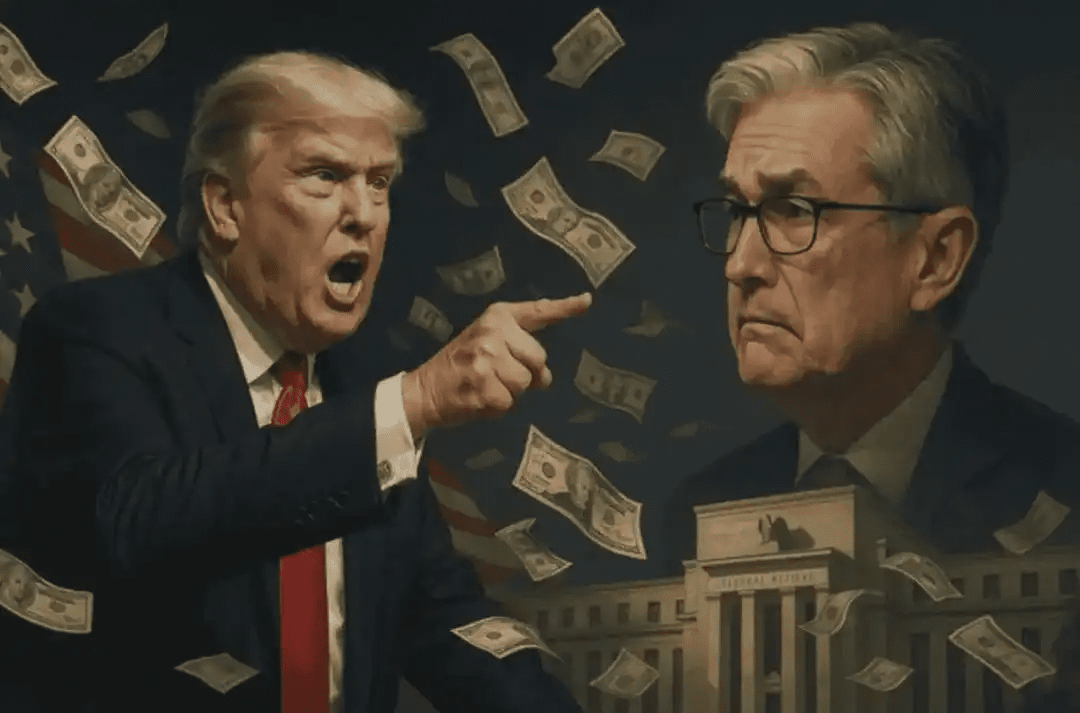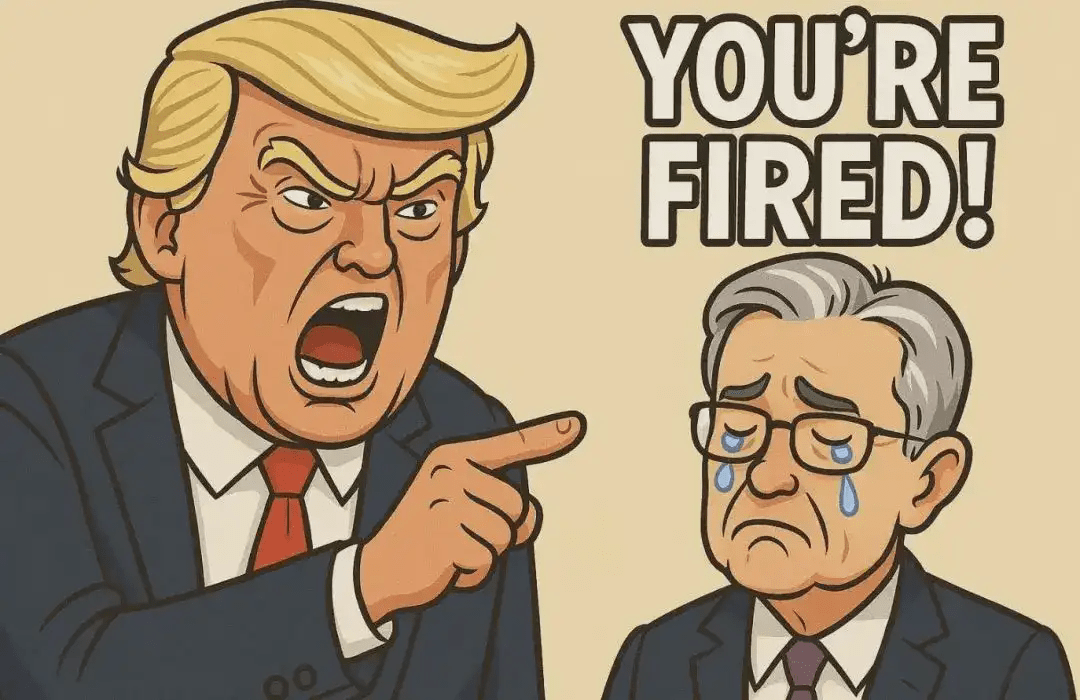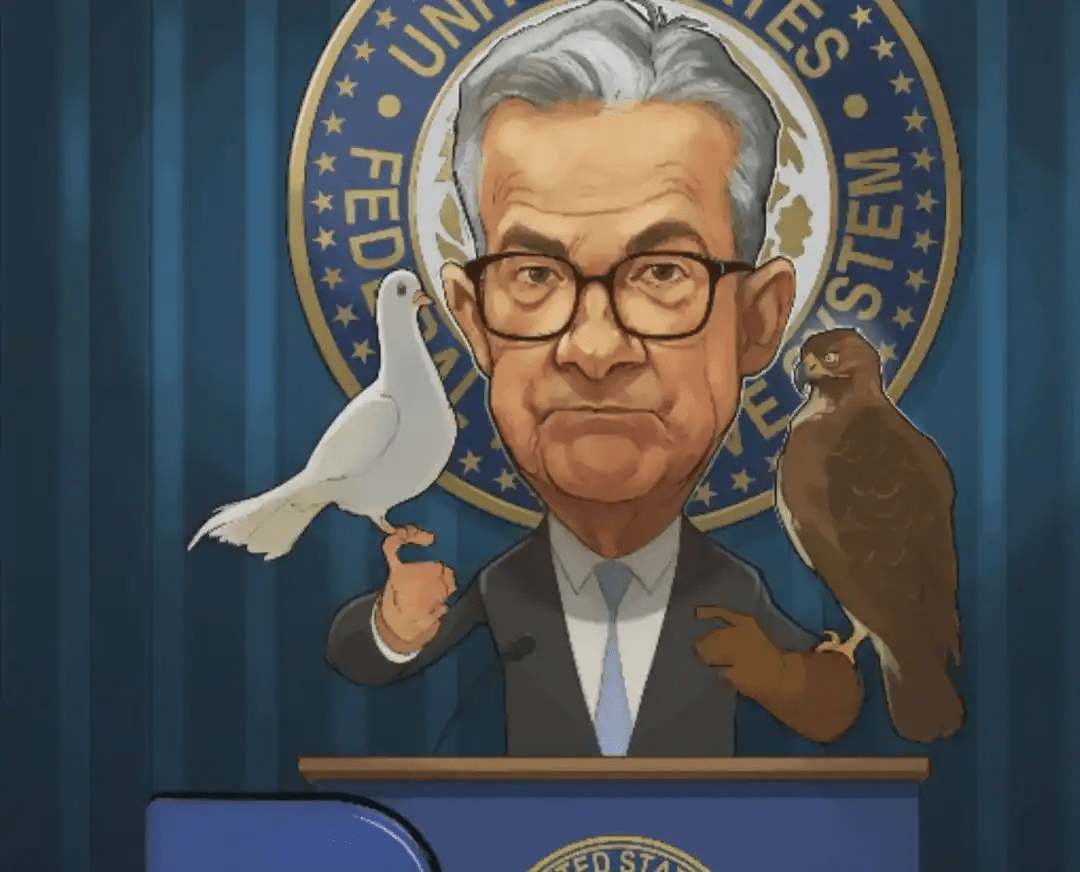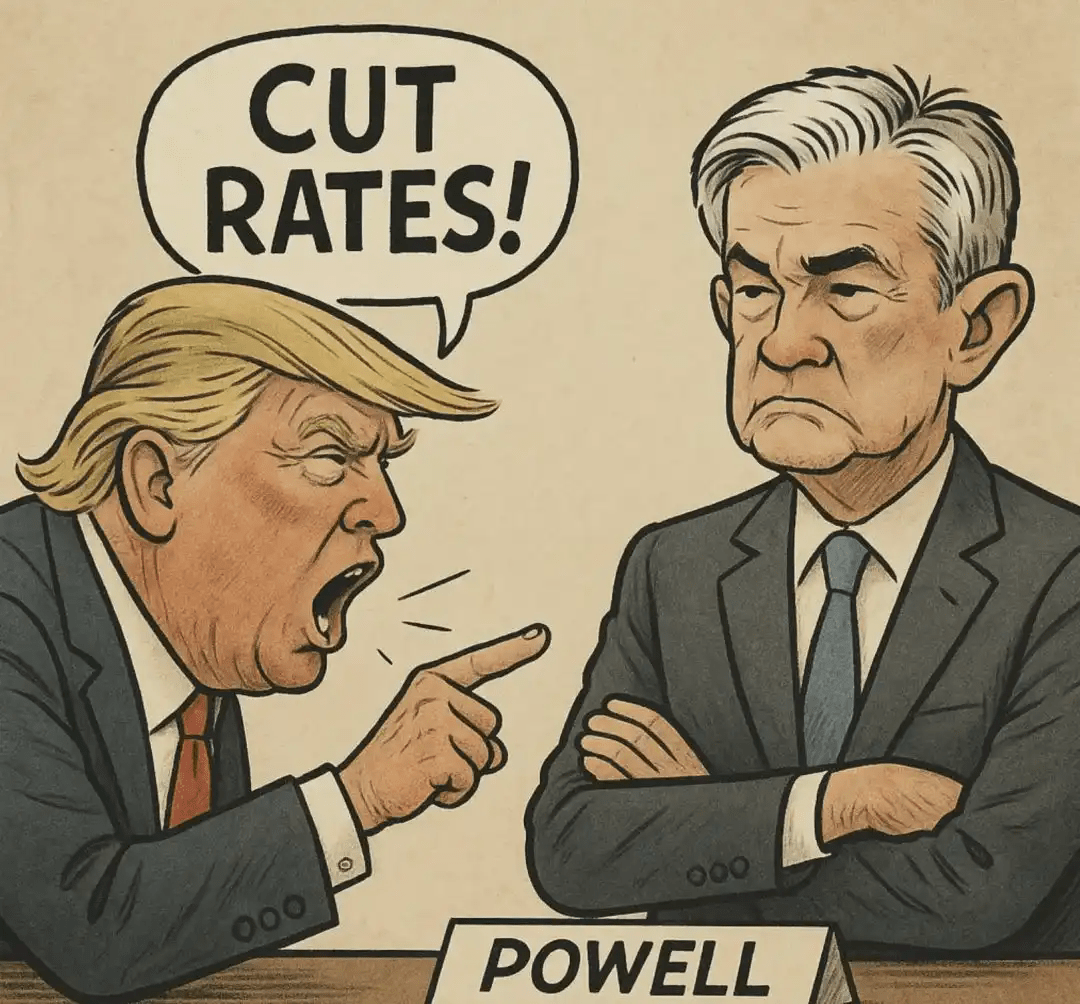Can 'renovation' really force the Federal Reserve Chairman out?
Trump began 'attacking' Powell during the election period, and now he is using the renovation controversy as a means to 'force a coup'. This seemingly ridiculous political drama is pushing global market sentiment to a critical point.
What kind of pressure is Powell under now? If he is really forced to resign, what kind of storm will it trigger?

Trump and Powell: A seven-year love-hate relationship.
The contradiction between Trump and Powell ultimately boils down to one sentence: one wants to lower interest rates, while the other stubbornly refuses to do so. This core divergence has led to a stalemate between the two since 2018.
Interestingly, Powell's appointment actually came from Trump's anointment. In February 2018, Powell officially took office as the Chairman of the Federal Reserve, nominated by Trump. At that time, Trump expected Powell to implement loose monetary policies to support economic growth.
In October 2018, Trump publicly criticized Powell for the first time, stating that the Federal Reserve's rapid interest rate hikes were 'the biggest threat', accusing Powell of 'going crazy'. The contradiction between the two began to become public, and Trump continued to pressure Powell, leading to an ongoing war of words.
In 2022, Powell was nominated for reappointment by Biden, extending his term until May 2026. As the 2024 election year approaches, the situation has further escalated. Whether during the campaign or after winning, Trump has continuously criticized Powell for being 'too slow to act and ineffective in cutting rates'. In recent months, Trump has repeatedly named Powell and demanded his resignation.
However, it is not easy for Trump to replace Powell. According to U.S. law, the president does not have the authority to dismiss the Federal Reserve Chairman due to policy disagreements unless he can provide evidence of 'illegal or gross misconduct'.
In July of this year, a real breakthrough occurred. The Trump team suddenly threw out a 'new script': Trump demanded Congress investigate Powell on the grounds of 'political bias' and 'making false statements in Congress', accusing Powell of leading a significant violation in the renovation project of the Federal Reserve headquarters.
During this time, rumors surfaced that Powell was 'considering resignation', rapidly escalating the situation. Seven years of power struggle reached a climax.

Trump and Powell: A seven-year love-hate relationship.
Former Federal Reserve economist Robert Hetrick bluntly stated: 'The Federal Reserve has been cornered.'
Currently, Powell is in a 'purgatory' of monetary policy: on one hand, there is the upward price pressure potentially brought about by Trump's tariff policies, while on the other hand, there are already signs of cooling in the labor market. This dual threat presents a dilemma for Powell and the Federal Reserve's policymaking.
If the Federal Reserve lowers interest rates too early, it may lead to a loss of control over consumer inflation expectations; if it chooses to raise rates to stabilize inflation, it could lead to turmoil in the bond market, soaring interest rates, or trigger a 'financial panic'.
Beyond the economic predicament, he also faces intense political offensive and defensive battles. However, in response to Trump's pressure, Powell has chosen to fight back. He requested the inspector general to continue reviewing the headquarters renovation project and, unusually, spoke out through the Federal Reserve's official website, detailing the reasons for the cost increases and rebutting the 'luxurious renovation' allegations.
Under the dual pressure of economic and political challenges, Powell is in a difficult moment in his career.

What will happen if Powell resigns?
If Powell cannot withstand the pressure and steps down, the 'pricing anchor' of the entire global financial market may loosen.
Deutsche Bank's Global Head of FX Strategy, Saravelos, analyzed that if Trump were to forcibly replace Powell, the trade-weighted U.S. dollar index might plummet by 3%-4% within 24 hours, and the fixed income market could see a sell-off of 30-40 basis points. The dollar and bonds would bear a 'persistent' risk premium, and investors might also worry about the politicization of the Federal Reserve's currency swap agreements with other central banks.
Saravelos further pointed out: 'What is more concerning is the current fragile external financing situation of the U.S. economy, which could lead to more severe and destructive price fluctuations than we predict.'
Moreover, a report released by the Dutch International Group's strategist team, including Padhraic Garvey, stated that the likelihood of Powell resigning early is 'low', but if it were to happen, it would lead to a steepening of the U.S. Treasury yield curve, as investors would anticipate a decline in interest rates, accelerating inflation, and a weakening of the Federal Reserve's independence. They also pointed out that this would create a 'deadly combination' for the depreciation of the dollar.
Crypto KOL Phyrex's analysis takes a more risk-asset perspective. He analyzed that even if Trump successfully replaces Powell, it does not necessarily mean he can 'control the Federal Reserve with one hand'. Once inflation truly rises again, the new chairman will ultimately have to return to a tightening path. If the Federal Reserve begins to cut rates in September while the economy remains stable and unemployment is low, risk assets may receive a short-term boost, benefiting the crypto market as well. However, current rates are still at 4.5%, and there is still a lot of 'water to be released' going forward.

The slightest shift in Powell's position can cause market turbulence. This is not just a game of monetary policy; it's also a contest of power and independence.
